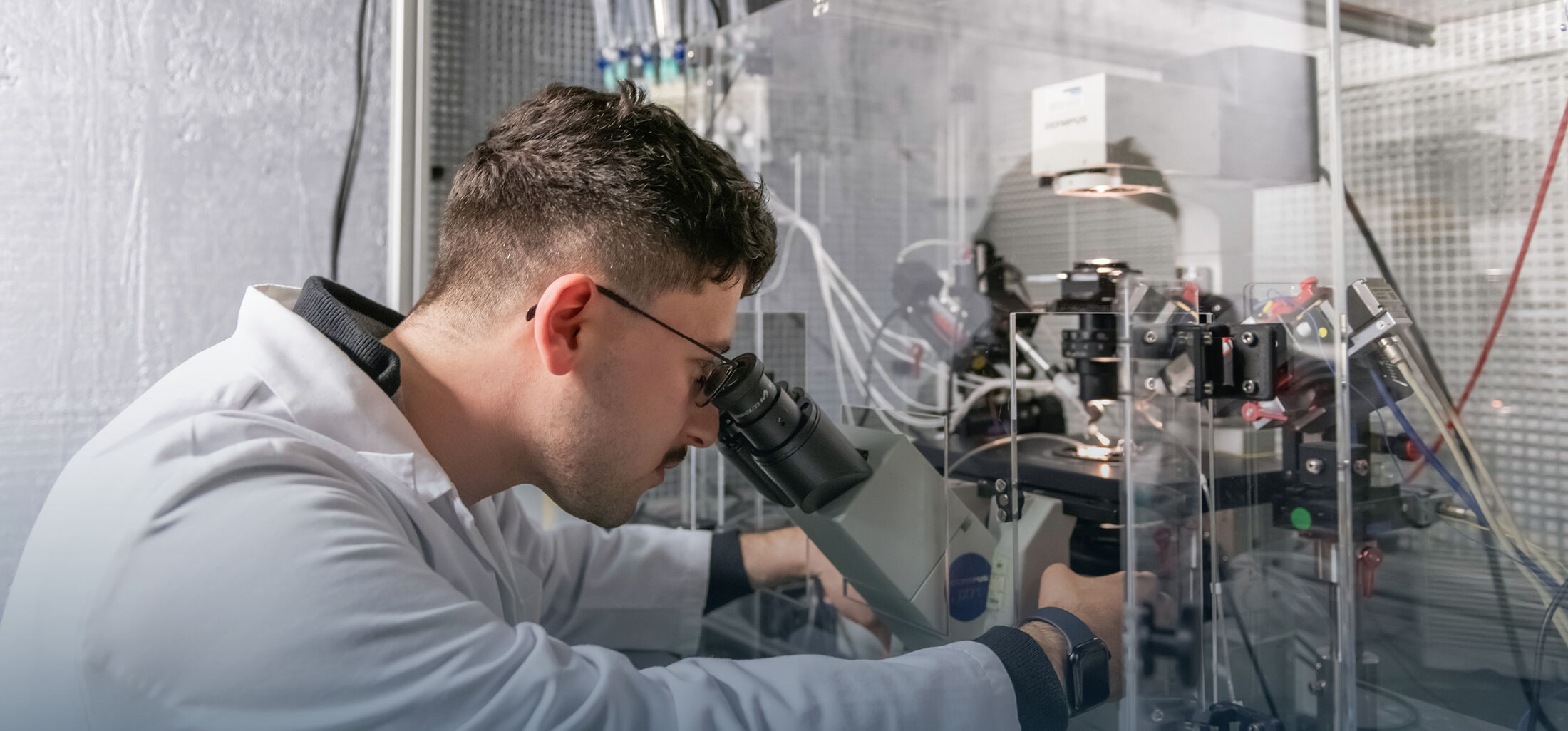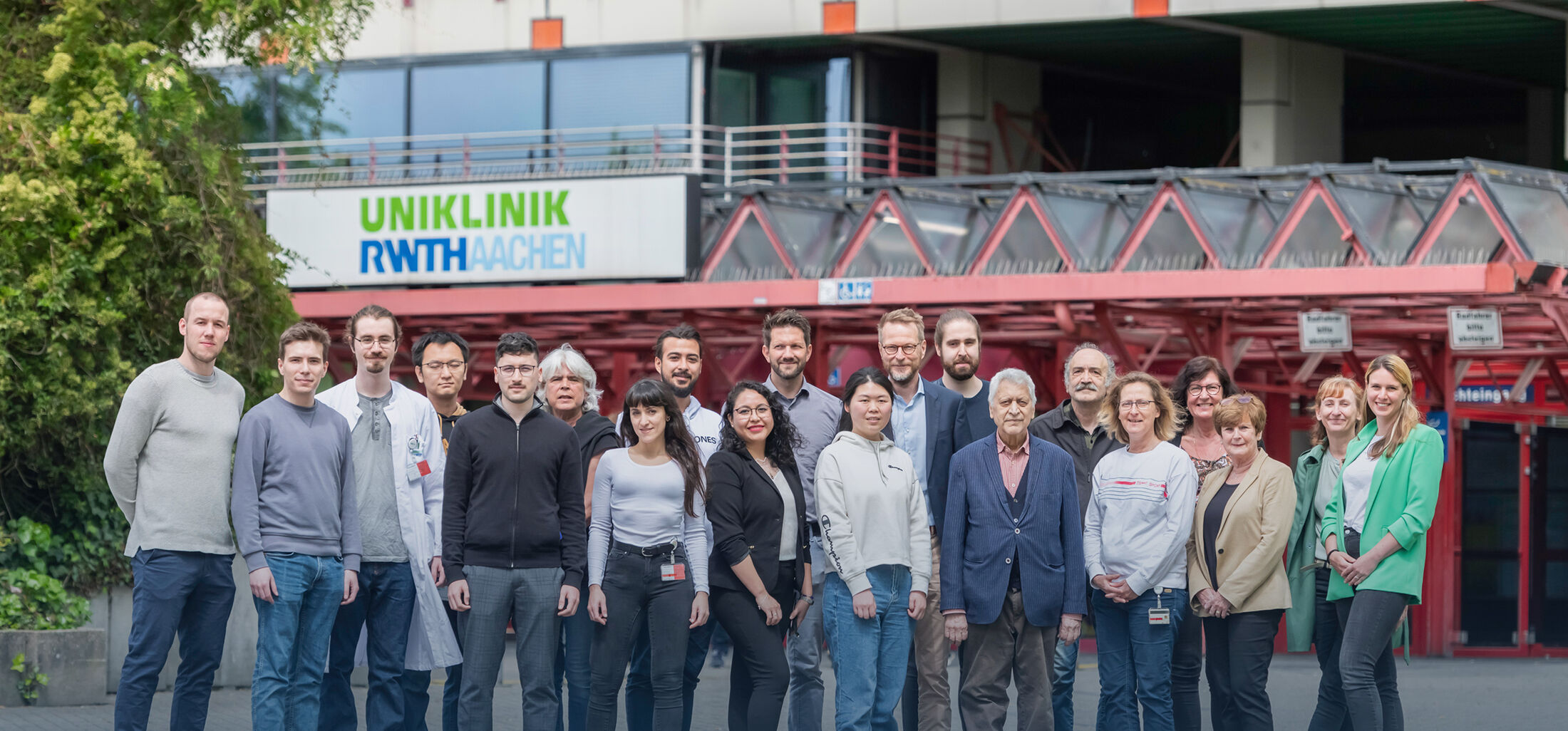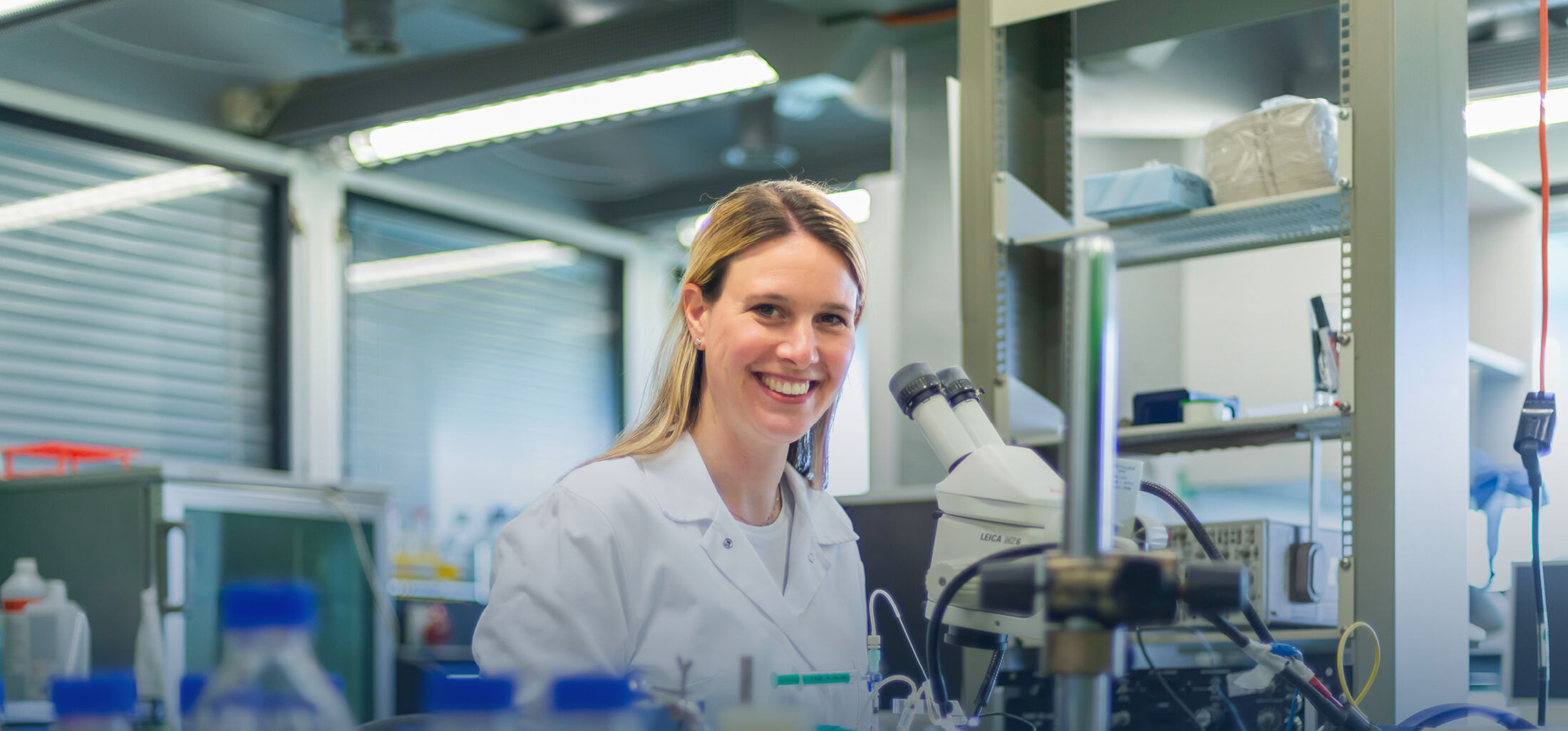Prof. Dr. rer. nat. Stefan Gründer

Room: 5th Floor, Corridor D, Room 20
Tel: +49 241 80-88800
Fax: +49 241 80-82434
sgruenderukaachende
Curriculum Vitae
1983 - 1989
Studies of Biology at the University of Cologne
1989 - 1990
Community service at the University of Cologne, Department of Otolaryngology, Head and Neck Surgery (Division of Audiology)
1990 - 1993
Doctoral work with Thomas J. Jentsch at the centre for Molecular Neurobiology Hamburg /ZMNH)
1993
PhD in Biology, University of Hamburg
1993 - 1997
Postdoctoral work with Bernard C. Rossier at the Institute of Pharmacology, Lausanne, Switzerland
1998 - 1999
Labhead at the Department of Otolaryngology, University of Tübingen; Group of J. Peter Ruppersberg
2000 - 2002
Head of a Research Group at the Medical School of the University of Tübingen
2003 - 2004
Research Group Leader at the Department of Physiology, University Tübingen
2004 - 2007
Associate Professor of Physiology, University Würzburg
2007
Acting Chairman of the Physiological Institute II, University Würzburg
since 2008
Full Professor of Physiology (Director), RWTH Aachen
2019 - 2021
President-elect of the German Physiological Society
2022-2024
President of the German Physiological Society
Honors and Awards
- Teaching Award Paula (awarded by the students of Aachen Medical School) for the Best Lecture 2011
- Teaching Award Paula (awarded by the students of Aachen Medical School) for the Best Lecture 2014
- Teaching Award Paula (awarded by the students of Aachen Medical School) for the Best Lecture 2020
Faculty Work
- 2012 - 2016: Dean of Studies
Work as a Referee
Referee for scientific organisations:
- French National Research Agency (ANR)
- Deutsche Forschungsgemeinschaft (DFG)
- Research Foundation - Flanders (FWO), Belgium
- Austrian Science Fund (FWF)
- German Israeli Foundation (GIF)
- National Science Foundation (NSF), USA
- Netherlands Organisation for Scientific Research (NWO)
- Swiss National Science Foundation (SNF)
Referee for Scientific Journals (selection):
- Nature
- Nature Chemical Biology
- Nature Communications
- Nature Structural and Molecular Biology
- Cell Reports
- PloS Biology
- Proceedings of the National Academy of Sciences (USA)
- Journal of Clinical Investigation
- Journal of Neuroscience
- Journal of Biological Chemistry
- Journal of General Physiology
- Journal of Physiology, London
Member of the Editorial Board of the „International Journal of Physiology, Pathophysiology and Pharmacology“
Selected Publications
- Gründer S, Thiemann A, Pusch M und Jentsch TJ.
Regions involved in the opening of ClC-2 chloride channel by voltage and cell-volume.
Nature 360: 759 – 762, (1992)
[demonstration that the ubiquitoulsy expressed chloride channel ClC-2 is sensitive to changes in cell volume] - Gründer S, Firsov D, Chang SS, Fowler Jaeger N, Gautschi I, Schild S, Lifton RP und Rossier BC.
A mutation causing pseudohypoaldosteronism type 1 identifies a conserved glycine that is involved in the gating of the epithelial sodium channel.
EMBO J. 16: 899 – 907, (1997)
[demonstration that a mutation leading to the salt-wasting syndrome pseudohypoaldosteronism type I reduces the open probability of the epithelial Na+ channel, explaining disease pathophysiology] - Chen X, Kalbacher H und Gründer S
The tarantula toxin Psalmotoxin 1 inhibits Acid Sensing Ion Channel (ASIC) 1a by increasing ist apparent H+ affinity.
J. Gen. Physiol. 126 (1), 71-79 (2005)
[demonstration that the spider toxin PcTx1 is a gating-modifier of acid-sensing ion channels] - Golubovic A, Kuhn A, Williamson M, Kalbacher H, Holstein TW, Grimmelikhuijzen CJ und Gründer S
A peptide-gated ion channel from the freshwater polyp Hydra.
J. Biol. Chem., 282, 35098-35103 (2007)
[first cloning of a ligand-gated ion channel from Hydra, directly gated by a peptide of the Hydra nervous system] - Bartoi T, Augustinowski K, Polleichtner G, Gründer S & Ulbrich MH
Acid-sensing ion channel (ASIC) 1a/2a heteromers have a flexible 2:1/1:2 stoichiometry.
Proc. Natl. Acad. Sci. USA, 111(2), 8281-8286 (2014)
[demonstration of a trimeric stoichiometry for ASICs; demonstration that the 1a/2a heteromer exists in two stoichiometries] - Reimers C, Lee C-H, Kalbacher H, Tian Y, Hung C-H, Schmidt A, Prokop L, Kauferstein S, Mebs D, Chen C-C und Gründer S
Identification of the a cono-RFamide from the venom of Conus textile that targets ASIC3 and enhances muscle pain.
Proc. Natl. Acad. Sci USA 114(17), E3507-E3515 (2017)
[isolation of a novel neuropeptide from the venom of a cone snail and demonstration that it modulates acid-sensing ion channel 3]





